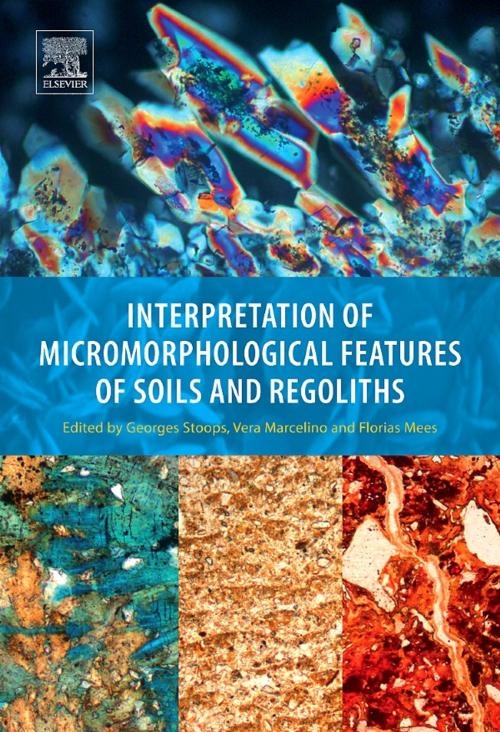Interpretation of Micromorphological Features of Soils and Regoliths
Nonfiction, Science & Nature, Technology, Agriculture & Animal Husbandry, Science| Author: | ISBN: | 9780080932309 | |
| Publisher: | Elsevier Science | Publication: | August 25, 2010 |
| Imprint: | Elsevier Science | Language: | English |
| Author: | |
| ISBN: | 9780080932309 |
| Publisher: | Elsevier Science |
| Publication: | August 25, 2010 |
| Imprint: | Elsevier Science |
| Language: | English |
Interpretation of Micromorphological Features of Soils and Regolith, 2nd edition, provides researchers and students with a global tool for interpretation of micromorphological features of regoliths and soils. After an introduction and general overview by the editors, micromorphological aspects of regoliths (e.g. saprolites, unconsolidated sediments, transported materials) are highlighted, followed by a systematic and coherent discussion of the micromorphological expression of various pedogenic processes. This is done by discussing diagnostic horizons, materials and processes. The following topics are also treated: freeze-thaw features, redoximorphic features, calcareous and gypsiferous formations, textural features, spodic and oxic horizons, andic and volcanic materials, organic and surface horizons, laterites, surface crusts, salts, biogenic and inorganic siliceous materials, authigenic silicates, phosphates, thionic and derived materials, and features related to faunal activity. The last chapters address the impact of anthropic activities, with regard to archaeology and palaeopedology.
Interpretation of Micromorphological Features of Soils and Regolith, 2nd edition, is written by a team of well-known, global experts in the field who all used a single set of concepts and terminology, making it a valuable interdisciplinary reference.
- The first exhaustive publication on interpretation of micromorphological features
- Covers related topics, making micromorphology more attractive and accessible for geographers, archaeologists and quaternary geologists
- Thematic treatment of a range of soil micromorphology fields broadens the content’s applications
- Authored by a multi-disciplinary team, ensuring thorough coverage of archaeological, geological, and earth science disciplines
Interpretation of Micromorphological Features of Soils and Regolith, 2nd edition, provides researchers and students with a global tool for interpretation of micromorphological features of regoliths and soils. After an introduction and general overview by the editors, micromorphological aspects of regoliths (e.g. saprolites, unconsolidated sediments, transported materials) are highlighted, followed by a systematic and coherent discussion of the micromorphological expression of various pedogenic processes. This is done by discussing diagnostic horizons, materials and processes. The following topics are also treated: freeze-thaw features, redoximorphic features, calcareous and gypsiferous formations, textural features, spodic and oxic horizons, andic and volcanic materials, organic and surface horizons, laterites, surface crusts, salts, biogenic and inorganic siliceous materials, authigenic silicates, phosphates, thionic and derived materials, and features related to faunal activity. The last chapters address the impact of anthropic activities, with regard to archaeology and palaeopedology.
Interpretation of Micromorphological Features of Soils and Regolith, 2nd edition, is written by a team of well-known, global experts in the field who all used a single set of concepts and terminology, making it a valuable interdisciplinary reference.
- The first exhaustive publication on interpretation of micromorphological features
- Covers related topics, making micromorphology more attractive and accessible for geographers, archaeologists and quaternary geologists
- Thematic treatment of a range of soil micromorphology fields broadens the content’s applications
- Authored by a multi-disciplinary team, ensuring thorough coverage of archaeological, geological, and earth science disciplines















